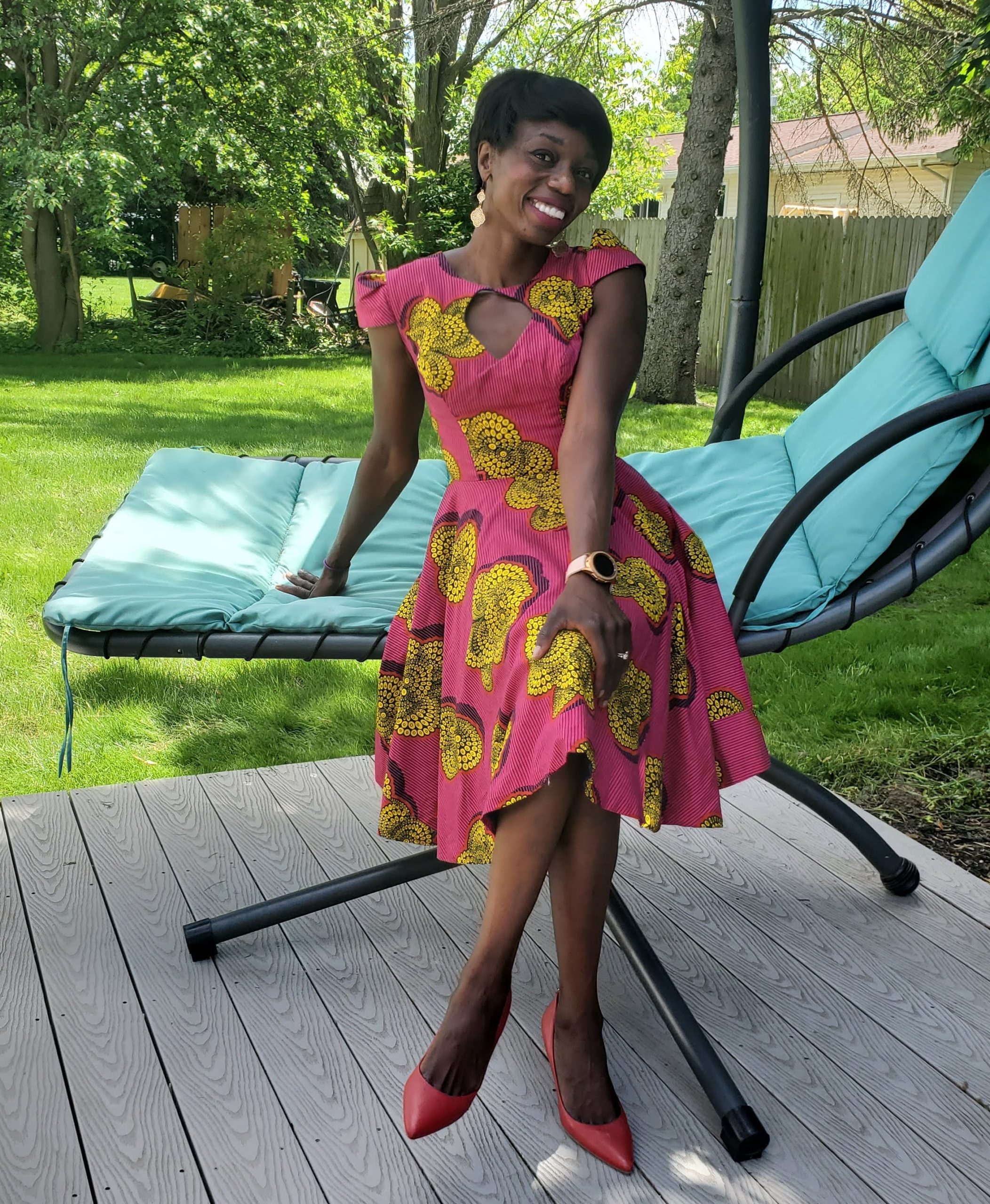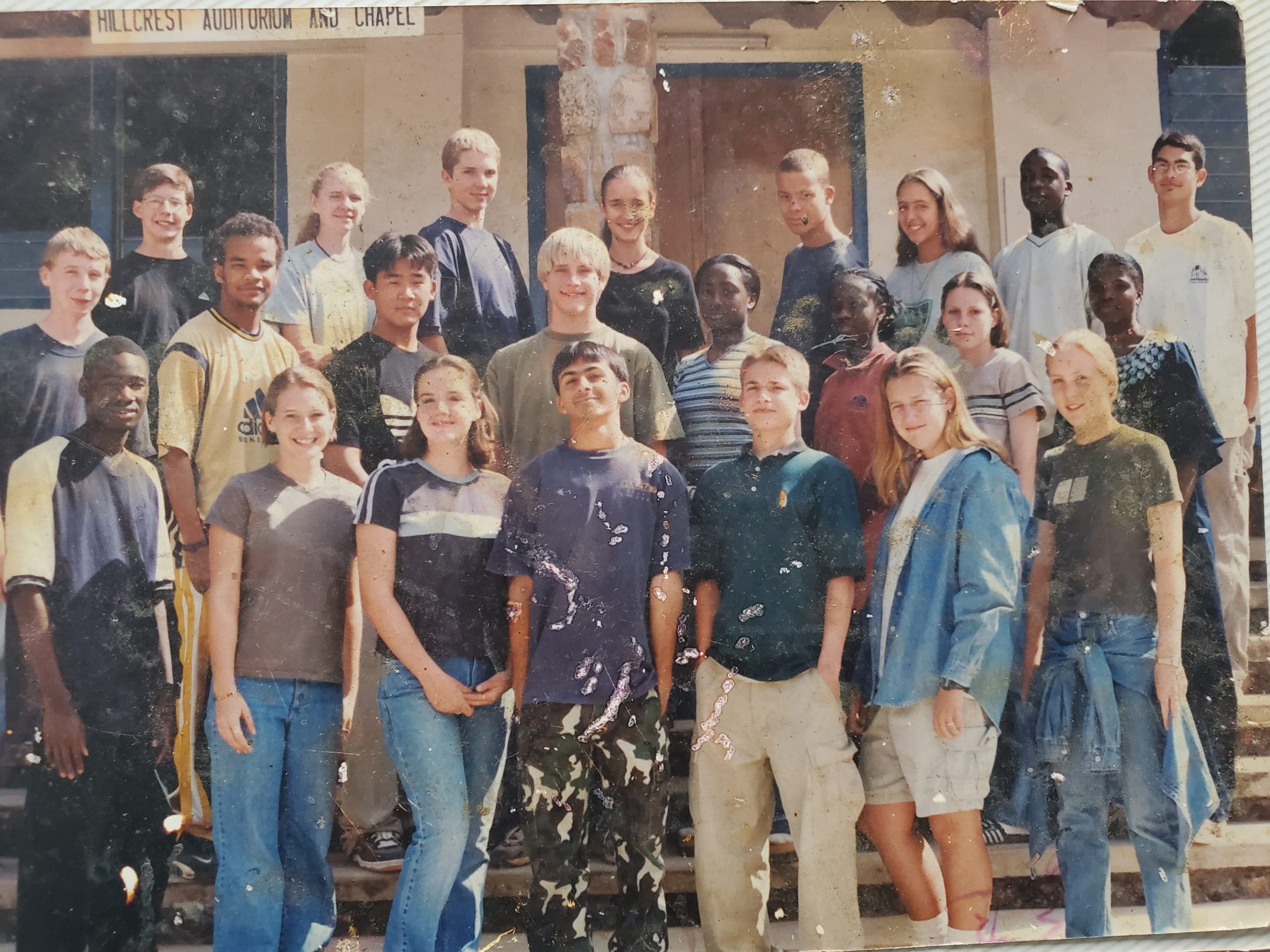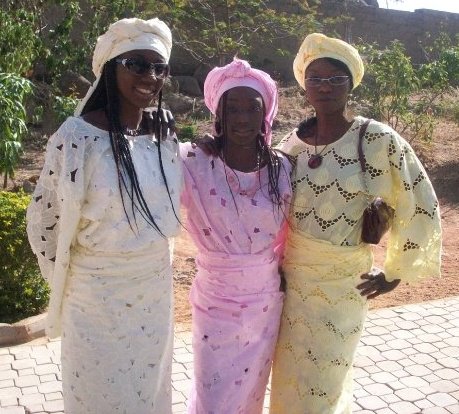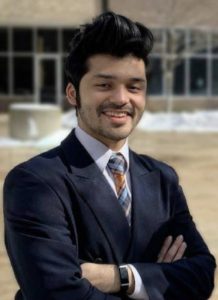We'd Love to Hear from You!
Flint is a city of many cultures, all coming together from around the world. People who have seen the world usually have a lot of stories to tell. This series will display perspectives of immigrants, international students, and Flint residents who have spent time abroad.
If you are interested in being featured in our profile postings, please contact Kon @ internationalcenterflint@gmail.com
ASINDA SIRIGNANO
July 2020

Asinda Sirignano radiates an infectious enthusiasm about world cultures. Diasporic questions bring the beam in her smile and talk of multicultural programming brings torrents of ideas and pen-scratched outlines. It’s her passion and a large part of the work she does as the project manager for the University of Michigan’s Provost's Office Global Engagement Team. Sirignano has chosen Flint as her long-term destination but has strong memories of her cosmopolitan upbringing in northeastern Nigeria and Jos, a Nigerian tourist town. From K-12 she attended an American international school where she encountered children from all over the world and it left a lifelong impression on her.
“Nigeria is a former British colony, so its education system is British-based. However, the K-12 school I attended was different, and from 1st grade to 12th, most of my classmates were from all over the world: USA, England, India, China, Ghana, Canada, Sierra Leone, Australia, Kenya, Lebanon, South Korea and more,” said Sirignano. “So like many humans, a lot of my worldview was shaped by my early experiences and in my case, I think because I have been surrounded by different cultures and languages from a young age, I've always gravitated to ‘different’ people and cultures. There are a lot of unique and different cultures in Flint, and I enjoy exploring them.”

She came to Flint in 2007 to study for her master’s degree and lived downtown until 2017 and although she lives towards the city’s outskirts, Flint remains her nuclear location.
Flint just so happens to remain in the “bad news” cycle for decades, but there’s so much more to Flint’s story.
ICGF: What cultural aspects differentiate Flint from your culture back home?
Flint and Jos are completely different cities in the sense of its cultural makeup because they’re on completely different continents! So even the fact that Jos never gets snow where Flint gets it for 5+ months of the year affects the customs and social institutions. For example, in Jos, there are many outdoor Farmers Markets every day, whereas in Flint, the market is open only a few days and it's on the inside (makes sense, right! Winter!).
The way people dress is also a big cultural difference: in Nigeria, traditional African wear is worn by both young and old, and is often blended with western clothing...think African print shirts and blouses mixed with a pair of jeans. And the food...food is very different in Flint from Jos, but I am a big foodie so love that there are more culturally diverse food options popping up across Flint.
ICGF: Before becoming acquainted with Flint, what had you heard about the city?
Honestly, I had not heard much about Flint, but I think it’s because prior to 2008, Michigan was not somewhere that crossed my mind as someplace I would go to (Jos, Nigeria is very sunny!). I am from West Africa originally so I did not grow up with any context or

stories about Flint. So I moved to Flint in 2008 with a pretty open mind and honestly was surprised at the number of negative stereotypes and misconceptions about the city. Of course, there is the crime here and there are challenges with water and access to many high-quality services larger urban cities might receive, but there are lots of places around the US and world like that...Flint just so happens to remain in the “bad news” cycle for decades, but there’s so much more to Flint’s story.
ICGF: What is one thing like to do in Flint?
Well, a variety of places in and around the city, and wherever there are cultural activities and events. Like, many, I enjoy the Farmer’s Market, the Art Walks, and going to the Flint Cultural Center, especially the Flint Institute of the Music. My daughter was involved in the Rep for years, and I also like taking her to Blue Bell Beach during the summers. Prior to COVID-19 which impacted summer festivals, I went to them all, including the Flint Jazz Festival and the Crim Festival of Races. I was also a Big Sister to a brilliant young lady for a few years and got familiarized with the less familiar areas north of downtown...my experiences there told me that the stories told about Flint's northside are very one-sided. There are also some food trucks that make some pretty delicious barbeque along Flushing Road headed west. Depending on how things look this fall with the pandemic, I intend to sign my daughter at Creative Expressions, a dance program housed at the Berston Fieldhouse, and I look forward to becoming more involved with the community events they host. Through ICGF, I’d like to do more too with Flint K-12 schools, especially getting youth excited about African countries and tribes, traditional African customs, and the ways Africa is modernizing while maintaining its cultural heritage.
ICGF: How has Flint changed your perspective of the world? Flint has changed my perspective on the world by teaching me two things: 1) humans have a habit of forming groups with “like-minded” and “like-looking” people and 2) the residents of Flint are some of the most resilient and down-to-earth people I have met in my life....and I have met a very wide variety of people from all over the world. In general, Flint has taught me that humans must go beyond the surface in order to evolve and progress. Also how optimism and building relationships with a wide variety of people from different backgrounds, races, religions, can improve relationships and career...it can enhance overall well-being really.
NICKXIT BHARDWAJ

1. Where are you From?
The Himalayas in India, Himachal Palampur.
2. What is your ethnic background
Indian.
3. Before coming to America, what did you know of Flint?
I knew about the automotive industry, the crime, and the water crisis.
4. Why did you come to Flint?
I got accepted to the University of Michigan - Ann Arbor, but Flint provided me with more scholarships and opportunities. I found I fit into the entrepreneurial spirit and community service. I got accepted into Florida U and San Jose, but I chose Flint for the idea of it, and the Michigan degree. "Building a reviving community" was a quote I saw on the University's webiste that inspired me to contribute to Flint.
5. Before you came to Flint, what were your expectations?
From Flint and the USA, in general, I was concerned of the gun violence. I remember hearing about two Indians shot in a hate crime 10 days before I was due to arrive. But I was hopeful, because of the Flint campus.
6. When you came to Flint, what were your first experiences?
Actually, those were good. Except my flight got delayed. Lack of transportation and nearby public services was a hindrance. But on the bright side, I met some German exchange students, I had a very welcoming university staff. Something crazy was the lack of Bazaars. You could wake up early and walk nearby to get eggs from Bazaars. I would wake up in the morning and the only thing open was a University Pavilion pizza shop.
7. What is one thing you like to do in Flint?
Being part of the performing arts. Going to the bars with friends, going to the art galleries, and art walks.
8. What is one thing you like about Flint?
I think that being part of the entrepreneurial and reinvestment aspects of Flint is rewarding.
9. What is one thing you dislike about Flint?
Two things: I wish Flint had more college students so we could have more college spirit. If it was cheaper, students would live here. It would be a much more vibrant place. I don't feel like the government even does much for Flint.
10. What cultural aspects differentiate Flint from the culture back home?
I think the close-knit community back home differs from Flint. Back home if something happens, people are there to help. People are more open-minded back home, in general: I feel people here are stuck to their own values, but I have met many open-minded people all the same.